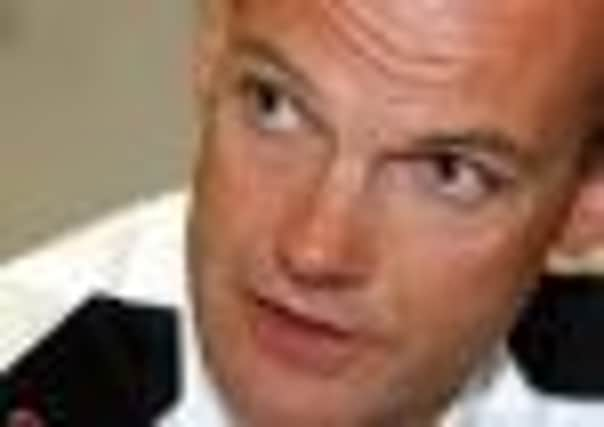Fears for policing specialists in fight to find cuts


Asking private companies to take over some aspects of police work is also a possibility, with one of the region’s most senior officers refusing to dismiss outsourcing to overcome a budget crisis.
The region’s constabularies have been forced to find new ways of saving money as they battle to cope with cuts of £200m over four years.
Advertisement
Hide AdAdvertisement
Hide AdBut there were fears last night that any reductions to teams of highly-trained officers would “severely compromise” efforts to combat crime across Yorkshire.
The region’s forces have been working together formally for more than two years to assess how they can cut costs by sharing resources.
Early moves have included joint procurement – enabling forces to buy kit, uniform and vehicles more cheaply – and creating a joint scientific support unit to handle forensic work.
There are plans to make criminal justice administration more efficient – tasks such as preparing files for court, caring for witnesses, handling warrants and offender management.
Advertisement
Hide AdAdvertisement
Hide AdBut it is understood that chiefs will then turn their attention to more controversial savings in the area of “operational support”, a category that includes firearms, mounted officers, underwater search teams and dog units.
Any changes are unlikely to be made before elected police commissioners take office in November, and certainly not before this summer’s Olympics which will require the largest security operation ever seen in Britain.
Yorkshire is expected to send hundreds of officers to bolster security in the capital, and more will be required when the Olympic torch moves through the region in the run-up to the Games.
Deputy Chief Constable Mark Whyman, who oversees regional policing, said: “After 2012 there may be more opportunity for changes, but we have to be careful because we need to prepare for the unexpected.
Advertisement
Hide AdAdvertisement
Hide Ad“We have to prepare for a mixture of predictable demand and the unplanned, unpredictable demand such as that we saw during the search for Raoul Moat or the riots. We must retain a level of flexibility.”
Fears about police privatisation have grown since it emerged that two forces, Surrey and West Midlands, had drawn up plans to use private firms to take over work including guarding crime scenes, patrolling neighbourhoods and collecting CCTV footage.
Mr Whyman said it was his “gut feeling” that such arrangements were unlikely in Yorkshire, but he refused to rule out some outsourcing in the future. “We won’t close our minds to it where there are opportunities and the business case stacks up,” he said.
Mr Whyman also revealed that chiefs had begun exploring money-saving procurement agreements with forces outside Yorkshire, including Northumbria.
Advertisement
Hide AdAdvertisement
Hide AdShadow Home Office Minister Diana Johnson, the Labour MP for Hull North, claimed the Government had “got it emphatically wrong on police cuts”.
She added: “This week we have already seen figures showing a dramatic fall in the number of police officers assigned to answering 999 calls.
“I am hugely concerned that if we also see units like firearms, mounted police and underwater search units cut, the ability of our police in Yorkshire to cut crime will be severely compromised.”
Ex-Humberside Police officer Keith Hunter, who wants to stand for Labour in the police commissioner elections, said private companies should be kept “very much away from the front line”.
Advertisement
Hide AdAdvertisement
Hide Ad“As soon as you get to a stage where the police service’s only contact with the public is when exercising powers of arrest, it will only bring down the whole basis of British policing,” he said.
Former North Yorkshire Deputy Chief Constable Peter Walker, who is seeking the Tory nomination, said outsourcing should be considered anywhere that did not involve “arresting people or patrolling the streets”.
“There are far too many bureaucratic monoliths in the public sector, and in the police service in particular,” he added. “We must chase the value and save taxpayers money.”